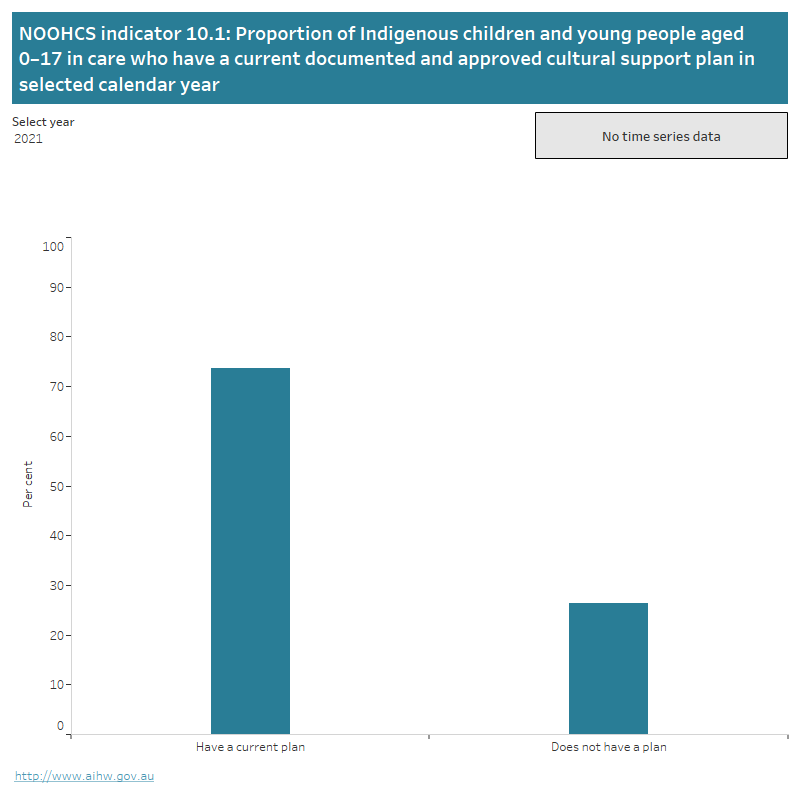10.1 Cultural support plans
This indicator measures the same outcome as NFPAC Indicator 5.4 and therefore both indicators report the same numbers.
A cultural support plan is an individualised plan that aims to develop or maintain children’s cultural identity through connection to family, community and culture, while they are in care. Cultural support plans help to ensure that planning and decision-making are culturally appropriate and in the best interests of the child.
A cultural support plan is usually developed between the child and the agency, in consultation with members of the cultural community (or relevant officer) and usually includes:
- Relevant cultural information
- Activities that maintain and support the child’s cultural identity and connection with communities and culture
- Supports required to ensure that the child maintains his or her connections and is able to participate in activities documented in the cultural support plan.
Trend data: For all indicator displays, the yearly trend is limited to indicators with 3 or more years (including the current year) of comparable time series data. To see the trend click on “Yearly Trend” button on the display. Where 3 or more years of comparable data including the most recent year is not available, a “No time series data” message is shown on the display.
The bar graph shows the proportion of Indigenous children and young people aged 0–17 in care who have (or do not have) a current cultural support plan. Data can be selected by year from 2014 to 2021.

Source: AIHW Child Protection Collection
See the supplementary data tables for further information and footnotes about these data.
For further information on cultural support plans see The Aboriginal and Torres Strait Islander Child Placement Principle Indicators 2018-19: measuring progress.
Indicator technical specifications
The information below provides technical specifications for the summary indicator data presented in the quick reference guide.
| Definition | Data source | |
|---|---|---|
| Numerator |
Number of Indigenous children aged 0-17 years who have a current documented and approved cultural support plan at 30 June |
AIHW National Child Protection Data Collection |
| Denominator | Number of Indigenous children aged 0-17 years who are required to have a current documented and approved cultural support plan at 30 June | AIHW National Child Protection Data Collection |
Explanatory notes
A cultural support plan is an individualised plan or support agreement that aims to develop or maintain children’s cultural identity through connection to family, community and culture, while they are in care. Cultural support plans help to ensure that planning and decision-making are culturally appropriate and in the best interests of the child.
Children in ‘care’ are defined as those whose care arrangements have been ordered by the Children’s Court, where the parental responsibility for the child or young person has been transferred to the Minister/Chief Executive.


